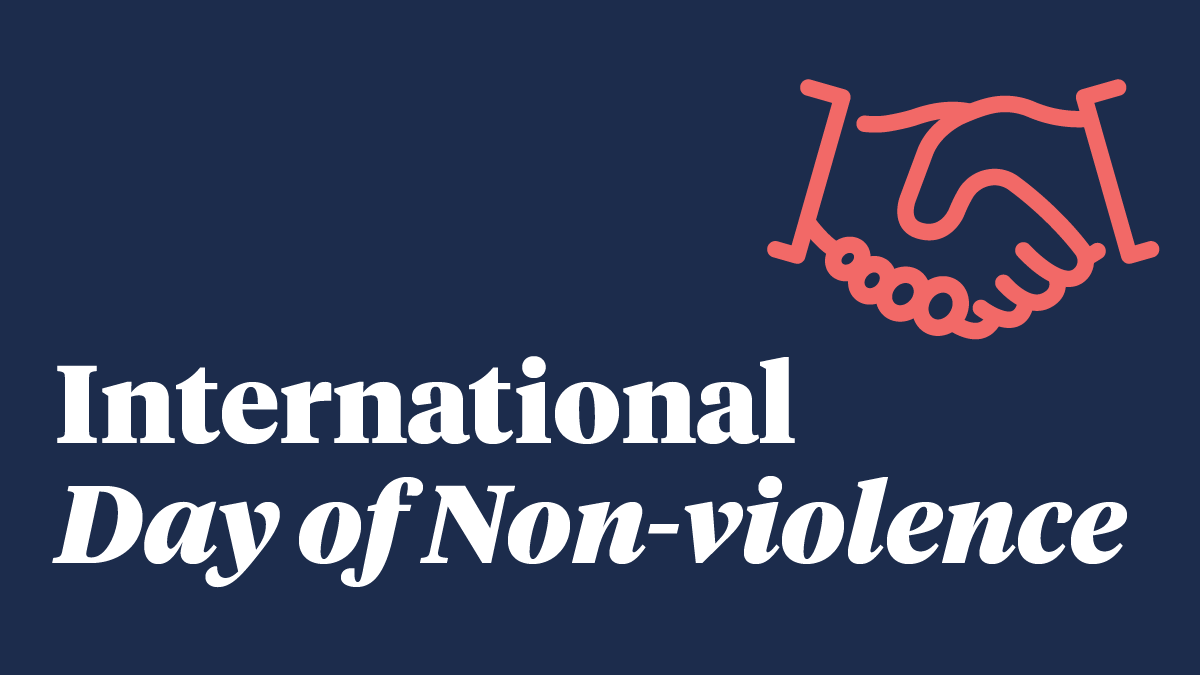
This month, we will be sharing stories from our Stabilization & Transition work, discussing some of the challenges the world is facing — from systemic racism to battling a pandemic to suffering through the greatest economic crisis we have faced since the great depression — and showcasing how the DT Global family is helping to create a less violent world.
October 2nd marks the annual International Day of Non-Violence. Throughout history, violence has been an unfortunate part of day to day life, and sadly continues to be a recurrent theme in many first world and developing countries. In war-torn Sudan, as in other countries in conflict, gender-based violence and conflict have become inextricably linked. To look at some of these difficult issues and think through the best way that we can combat sexual violence in the new Sudan, we interviewed Ms. Nawal Hassan Osman, a Darfur Expert on USAID’s Toward Enduring Peace in Sudan (TEPS) project, implemented by DT Global.
Since gaining independence in 1956, Sudan has endured decades of conflict. Since 2011, the regions of South Kordofan, West Kordofan, and the Blue Nile states have seen nearly 1.5 million persons displaced or impacted by the conflict. In Darfur, the war between the rebels and government forces resulted in mass atrocities and human rights violations, including extrajudicial killings, rape, abduction, and torture.
Gender-based violence and conflicts are inextricably linked, as sexual and gender-based violence is often a key aspect in armed conflict, and sexual and gender-based violence is especially widespread among displaced and returnee women and girls. Since its adoption in the year 2000, the United Nations Security Council Resolution (UNSCR) 1325 calls on all parties involved in armed conflict to protect women and girls from gender-based violence.
Peace building efforts, improving livelihoods, trauma healing, and psychosocial support are some of the ways Sudan is combatting sexual and gender-based violence. Following the popular uprising in 2019 that led to the removal of former President Omar Al Bashir, now comes a momentous opportunity to further shape laws that protect against sexual and gender-based violence.
Recently, DT Global interviewed Ms. Nawal Hassan Osman, the Darfur Expert on USAID’s Toward Enduring Peace in Sudan (TEPS) project to discuss combatting sexual and gender-based violence in the new Sudan. In a television panel discussion on local Sudanese channel, Sudania24, on June 19th, 2020, Ms. Osman spoke at length on this topic (link to the full interview below).
Nawal: At national level, the Transitional Government has been fully committed to tackling sexual and gender-based violence. The federal government employs staff at the Ministry of Labor and Social Development, including establishing a GBV unit. However, this type of commitment is lacking at state level.
As for the national plan to implement UNSCR 1325, the Ministry of Labor and Social Development has made important progress in addressing the conflict and its relation to sexual violence, including with the recent signing of the cooperation framework on 10th March, 2020, between the government and the United Nations on the prevention and response to sexual violence in conflict.
The Ministry also adapted a zero-tolerance policy against all forms of gender-based violence by establishing an Inter-Ministerial Working Group composed of senior officials from relevant ministries and institutions.... The working group will be chaired and convened by a high-level focal point and
has already made a very good plan, but all efforts have been at a national level, and so it needs to trickle down to a more local level, especially in the periphery, where it is most needed. …There is still a lot of work to do when it comes to enforcing the laws and reforming the judicial system to ensure timely justice for victims and accountability from the perpetrators.
Nawal: Civil society in Sudan has long worked on GBV issues through the provision of legal aid, awareness raising efforts, and the provision of other services. In terms of transforming society’s mindset and addressing some of the root causes of gender-based violence, civil society can play a critical role. It can also work on improving incident-reporting, facilitating reintegration of survivors and children born of rape, and developing evidence-based advocacy to raise awareness about sexual and gender-based violence in order to deepen public knowledge and engagement on this issue. As the government works on developing a training curriculum to prevent GBV targeting students at universities, high schools, military forces, and police and law enforcement personnel, civil society can collaborate with officials towards ensuring curriculum effectiveness when it comes to this issue.
Nawal: At national level, the international community should provide financial and technical support to help the Transitional Government implement its 1325 plan. State-wise, there is a demand for comprehensive assessment and mapping of needs, data, gender sensitive budgeting, staff training, reporting, investigating, and provision of comprehensive services to victims of sexual violence in conflict. This can be done by strengthening access to medical, psychosocial, legal, and socioeconomic services for survivors of sexual violence.
USAID supported the establishment of the Damazine Trauma Center in Blue Nile State and Ahfad Trauma Center in North Darfur State in 2016 under the Toward Enduring Peace in Sudan (TEPS) project, implemented by DT Global. In 2018, the TEPS project trained trauma center staff and service providers on GBV trauma case management and engaged students to participate in Zero Tolerance Day as part of GBV awareness campaign. With USAID’s support, Al Ahfad University for Women also created a GBV toolkit to assist service providers in drafting a GBV survivor self-help booklet, case identification and referral notebook, and quality guidelines for GBV case management.
Still, there is a big gap in mental health and psychosocial support, including a lack of professional cadre and centers for trauma healing. The international community should build on said support and continue to build these efforts by expanding on the trauma centers.